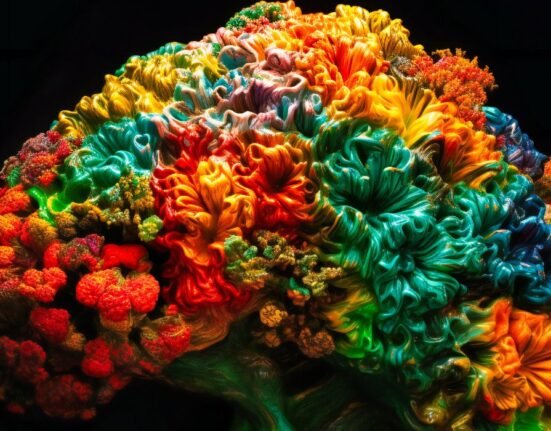Cancer diagnosis and the treatment that follows can be among the most severe challenges that face not only physical health but also mental wellness. The mental experience of the struggle with cancer is one capable of deep disappointment, causing anxiety, experiencing fear, and worrying about a lot of things not related to the diagnosis. It is essential to provide medical care that encompasses all aspects of mental health care, in addition to the former focus on physical health, for cancer patients.
Cancer is far more than just a physical disease; it also brings significant psychological challenges that affect the emotional well-being of patients. This article explores the ramifications of a cancer diagnosis on mental health, discusses common mental health distresses of cancer patients, suggests supportive strategies, looks at the job of healthcare workers, explains the need for holistic treatment, and investigates how cancer care combats stigma and the obstacles to psychological support. By highlighting these crucial factors as such, we want to justify awareness and effectual approaches to make cancer patients be mentally strong while facing their treatment.
Mental Health Challenges in Cancer Survivors
While battling cancer, the attention is most likely to be focused on therapies and available interventions. The most critical is to recognize or have a mental health care system in place that will provide emotional treatments to these individuals during their treatment. A cancer diagnosis, which apart from the emotional impact is also associated with long and intense treatment procedures, can go a long way to tank one’s well-being. In such a case, mental health support becomes just as important as medical care.
Contribution of holistic strategies
Cancer and mental health are closely related, side by side, with the emotional and psychological aspects of cancer diagnosis being so essential that have a tremendous impact on patients’ overall health.

Lamenting the increase of mental health problems through fear, doubt, and anxiety are some of the issues that a cancer patient is required to face, which may considerably affect their mental status and can either aggravate the process of patients suffering from the illness. Recognizing that this area is a central part of the cancer care received by patients is important when it comes to providing comprehensive health services.
Mental health disorders
Mental health problems are one of the most common complications of cancer and yet they may be overlooked or understated. Patients and their families (and sometimes friends) may struggle with anxiety, depression, post-traumatic stress disorder (PTSD), or adjustment disorders when they are trying to cope with the complexities of a cancer diagnosis and treatment. Identifying the high occurrence of these conditions is the first thing on the line to solve them satisfactorily.
Cancer Diagnosis and Psychological Reactions
Cancer diagnosis is an experience impossible to forget that may provoke different reactions in different people. People usually experience shock and confusion at first after the diagnosis, then move on to fear and anxiety which only can make them less prepared psychologically. The study of the psychological reactions of these cancer patients is the major issue of the day, and that is what helps in providing individual assistance for him or her. An emotional response to a cancer diagnosis can be pretty different and unpredictable among unique individuals. People’s reactions can vary tremendously, some may feel a sense of lingering numbness at first or denial, and others may show irrational fear and high anxiety. It is a difficult road to go through the diagnosis and emotional processing of the associated emotions. Individualized support and a friendly and patient healthcare provider and loved one’s team is essential.
Fear, Anxiety, Depression, and Mental Health Challenges During Treatment
Those fights of terror, anxiety, and depression are the most common diseases for a lot of cancer patients while they are passing through the difficulties of undergoing treatment and confronting the uncertainty of the future. Handling cancer’s physical symptoms, side effects of treatment, and fear of relapse, may result in the chronic ness of anxiety and depression. Awareness and solutions to these feelings are crucial at boosting the mental health of cancer patients. During the cancer treatment process, patients may deal with different mental health hazards that contribute to their mood and general sense of well-being. The round of the psychological effects of chemotherapy, as well as the problems of self-concept and body image, necessitate a comprehensive approach so that an individual can live fully during the treatment.
Chemotherapy-Related Mental Health Effects:
Chemotherapy being an essential pillar of cancer treatment can, however, come with notable effects on the psychological state of the patient. Complications like fatigue, nausea, hair loss, and cognitive impairment can combine with psychological issues, let alone depression or distress. Such management of patients is not just helpful, but necessary as a way of helping them cope with the mental impact of chemotherapy.
Body Image and Self-Esteem Confrontation:

A Cancer treatment that leads to physical changes to a person’s appearance, such as hair loss, weight changes, or scars, could have a great effect on the individual’s self-confidence and self-esteem. Reconciling oneself with these changes and retraining the feelings of identity may be mentally challenging for many cancer patients. Supplying assistance and resources is essential for improving mental health outcomes and addressing the body image problem.
Strategies and Counseling Options
Ensuring that patients suffering from cancer receive adequate mental care is an essential component of total cancer care. Through the counseling and therapy options, among others, you get various strategies that will enable you to tackle the emotional challenges involved in cancer diseases and their treatments. Counseling and therapies are instrumental in relieving the emotional stress of the patients who are dealing with the diagnosis and treatment of cancer. Some of the more common approaches include individual therapy, group therapy, cognitive-behavioral therapy, and other evidence-based ones that can help patients put their emotions into words, develop new ways to cope and improve their life in face of cancer-related challenges.
Role of Support Groups
Support groups and peer counseling deliver one of the greatest ways of connecting to the people walking through similar experiences and problems. While cancer patients may feel isolated sometimes, narrating their stories, receiving empathy and understanding, and building a feeling of belonging can be behind the corner for them. People who engage in support groups and peer counseling should get to know people who are on the same path and feel less lonely and more empowered to tackle their cancer battle.
Cancer treatment may affect emotional states negatively as well as healthcare providers have a key role in handling these problems. Specialists from the oncologist to the psychologist are regularly part of the multicultural team that offers comprehensive care to patients during this kind of tough period.
Collaborative Care Models Enhance Psychosocial Support in Cancer Treatment
Psychosocial support acts as a warm blanket for patients battling cancer, which provides comfort and understanding having to deal with the emotional roller-coaster of the diagnosis. Resources may vary in form such as individual therapy, support groups, and counseling services, but that does not change the way they affect the cancer treatment process as a lifeline.
In the areas of mental health and cancer treatment, the partnerships are vital. Collaborative models of healthcare where medical professionals in different branches work together, result in better care where both the physical and mental needs of patients are met. Such a holistic intervention can contribute a lot to better results and to the improved quality of life of such patients.
A Vital Message for Patients & Caregivers
The stigma and obstacles standing in the way of mental health care in cancer treatment may prevent patients from accessing help. Patient and caregiver education along with cultural and social stigma elimination is the only way to demolish those barriers and help everyone to obtain the mental health assistance they need.

Knowledge is power if you want to deal with mental health problems. Education of patients and caregivers on why mental well-being should be addressed during cancer treatment can do a lot to enable them to ask questions, seek help, and even advocate for their own mental health needs.
Smashing Cultural and Social Prejudices Associated with Mental Health in Cancer Treatment
Cancer doesn’t care for who to choose, and neither should mental health support services. Overcoming cultural and social barriers connected with mental health in cancer care is a prerequisite for delivering holistic care irrespective of the patient’s socio-cultural background and beliefs. With this, we can reach the goal of having an inclusive and comforting atmosphere for individuals with cancer.
Closure
As a result, mental health care of patients with cancer is an essential part of their total health and the lifelong process of treatment. By acknowledging the emotional difficulties, offering appropriate assistance, and removing mental healthcare obstacles, healthcare providers and caregivers could better enable patients to go through the entire cancer treatment program with grit and hope. With a holistic approach that integrates physical and mental health concepts, we should make efforts to enhance the quality and outcomes of individuals who are burdened with cancer and mental health problems. Let us continue to strengthen mental health support for cancer care, where patients can find a comforting and non-judgmental setting.
References+
- https://www.cancerresearchuk.org/about-cancer/coping/mental-health-cancer/during-and-after-cancer-treatment
- https://med.stanford.edu/survivingcancer/coping-with-cancer.html













Leave feedback about this